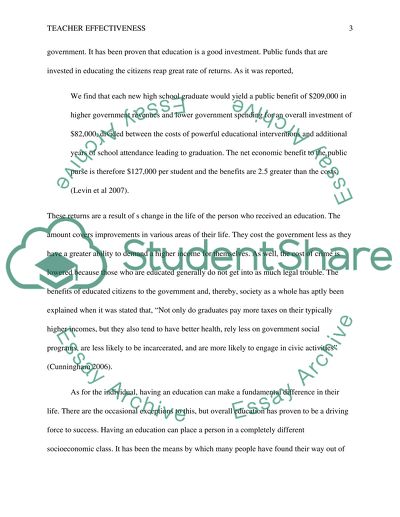Cite this document
(“Teacher Effectiveness: The Search for a Proper Definition Essay”, n.d.)
Retrieved from https://studentshare.org/education/1436003-teacher-effectiveness-the-search-for-a-proper-definition
Retrieved from https://studentshare.org/education/1436003-teacher-effectiveness-the-search-for-a-proper-definition
(Teacher Effectiveness: The Search for a Proper Definition Essay)
https://studentshare.org/education/1436003-teacher-effectiveness-the-search-for-a-proper-definition.
https://studentshare.org/education/1436003-teacher-effectiveness-the-search-for-a-proper-definition.
“Teacher Effectiveness: The Search for a Proper Definition Essay”, n.d. https://studentshare.org/education/1436003-teacher-effectiveness-the-search-for-a-proper-definition.


